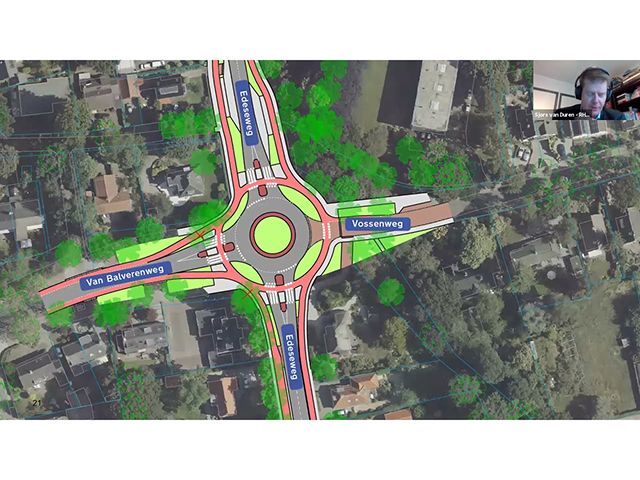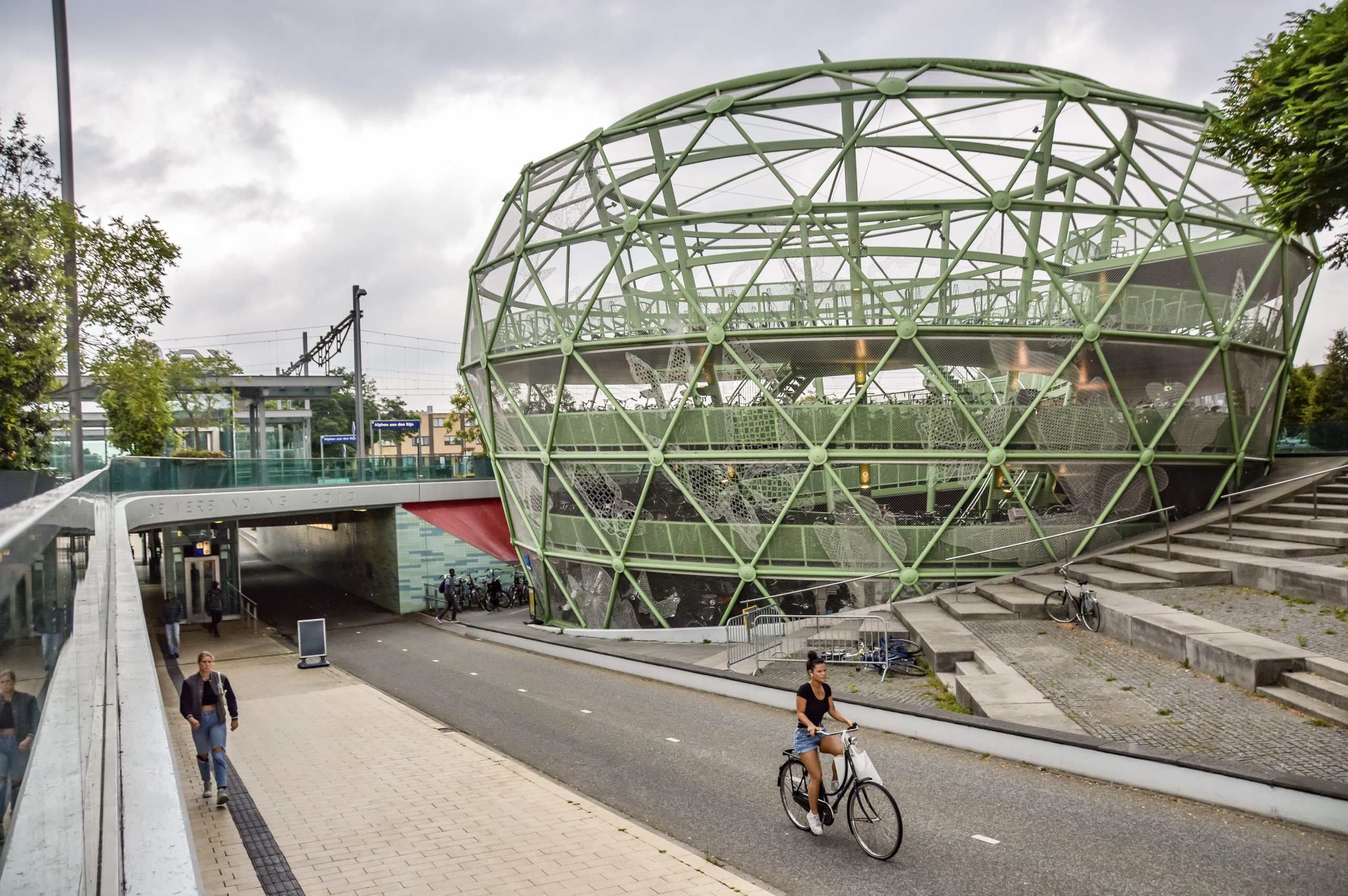Boosting the ‘Verkehrswende’ in Germany
7 December 2021DCE organizes webinars to help German municipalities and regions develop attractive and safe bicycle networks.
Image Source: Royal HaskoningDHV
This autumn, the Dutch Cycling Embassy and Netherlands Embassy in Berlin organized a series of four webinars to help German municipalities and regions develop attractive and safe bicycle networks. Each meeting focused on a different theme, and with presentations by both Dutch and German experts, participants were informed about the developments and methods needed for designing a cohesive cycling network. With the help of the Allgemeiner Deutcher Fahrrad-Club (ADFC), a total of over 800 attendees were reached during the various digital sessions.
First Series of Webinars in 2020
Last year, during a five-part webinar series, the Dutch Cycling Embassy focused on the opportunities in Germany as a result of the newly-passed national climate plan. The financial resources of the Bundesregierung and the practical experience of the Netherlands can significantly accelerate the so-called Verkehrswende (“transport turnaround”) in Germany—but only if the momentum is used and investments made wisely. During recent webinar series, it became clear many German municipalities are developing, but there is also much work to be done.
Second Webinar Series
All four webinars had a specific focus and theme, providing additional insights or reflecting on topics that had not been covered in the first series. In each session, the theme was introduced by Dutch Cycling Embassy Director Lucas Harms, and a representative of the ADFC. Then Dutch experts from public and private organizations presented insights and German experts reflected on what the Dutch had to offer. Dagmar Köhler of the Deutsches Institut für Urbanistik moderated the sessions and translated the Dutch experiences to the German context.
- The first session on October 28th was a virtual bicycle tour through Utrecht. By means of a 360-degree camera recording provided by Mobycon, the participants virtually jumped on a bicycle and were guided through the recently built out Leidsche Rijn neighbourhood, guided by Melissa Bruntlett, Lennart Nout, and Bernhard Ensink. Here you can watch the recording of the session.
- The second session on November 11th focused on intersection design, following Dutch guideline principles. Sjors van Duren (Royal HaskoningDHV), Markus Franke (ARGUS Hamburg), and Katharina Metzker (Stadt Darmstadt) presented their views on the various designs of intersections and how the Dutch model might be translated to the German context. The enthusiasm of the participants was enormous, as demonstrated by the large number of questions asked in the chat. Here you can watch the recording of the session.
- The third session on November 25th focused on the bike-train combination and bike parking, with contributions from Ton Kooymans (Streetstuff), Michael Zyweck (DeinRadSchloss), Rebecca van der Horst (NS), and Angela Francke (University of Kassel). Here you can watch the recording of the session.
- The fourth and final session on December 7th focused on bicycle lanes, zero emission urban logistics, and efficient use of public space. During this meeting presentations were provided by Dutch experts Ruben Loendersloot (Loendersloot Consultancy), Manuela Studer (Goudappel), Erik van den Eijnden (Ministry of Infrastructure and Water Management), and Norbert Schmidt (APPM) . Here you can watch the recording of the session.
At the end of the last session Lucas Harms (Dutch Cycling Embassy) reflected on the results of webinar series and announced several follow-up activities to be scheduled in Germany in 2022. The Dutch Cycling Embassy and the Netherlands Embassy in Berlin are aiming to host various activities in the months ahead together with the Dutch and German experts, as to give cycling an increasingly prominent place. The first cautious steps have been taken, and in years to come, the definitive “transport turnaround” might be achieved.


